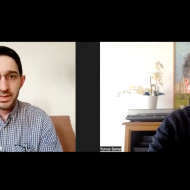In one of Hugo Chavez’ most celebrated speeches, he proclaimed proudly and to loud applause that “Venezuela will never again be a Yankee colony,” and stated that the country had entered the most definitive period of its independence. Regardless of whether or not Chavez correctly assessed his historical moment, it is critical that we see ours clearly. What is currently happening in Venezuela is a coup, supported by the most powerful geopolitical and economic interests in the world. These interests include multibillion-dollar corporations, rival governments like Colombia, an opposition group made up of disempowered oligarchs and American politicians hell-bent on reviving the Monroe Doctrine.
There is nothing new in this script, it is the same scenario we have seen played out in countless countries over the past century. Over and over again, we see countries elect or give power to a party or movement that stands in direct contrast to the interests mentioned above, only to have Washington decide that they have other plans in store. Until these leaders are deposed or killed, they tend to be the type who put people and planet before profit, stand for ideals like independence, sovereignty, and social justice, and, most fatally, seek a multipolar world.
It comes as no surprise that many of these countries also have an abundance of resources which are highly sought after by the ruling elites and their corporate masters. We might recall, for instance, the coup against Jacobo Arbenz in Guatemala, or the coup against Mossadegh in Iran, or the coup against Salvator Allende in Chile… the list is extensive. All of these coups were orchestrated with the help of domestic corporate interests hostile to their popular national governments, and, either covertly or blatantly facilitated by the United States.

While most countries in Latin America have experienced Washington-backed imperialist sabotage and intervention, one example is particularly worth mentioning for our purposes, Venezuela itself. The country has been a target for “regime change” ever since the election of Hugo Chavez in 1999, and has survived several failed coup attempts. The Bolivarian Revolution has been at constant odds with the US for daring to put the interests of ordinary citizens before the interests of the oligarchs, exploiters and imperialists. Washington’s latest coup attempt is an unapologetic continuation of decades of shameless interventionist policy.
While a lot has happened in the last two weeks, the conflict truly began in May of 2018 when a majority of Venezuelan voters again chose Maduro as president. For the United States and its proxy-state allies, this was an unforgivable offense. While the people of Venezuela have been a consistent thorn in their side, the fact that the country’s population did not blame their government for the hardships which resulted from US-led economic war and sabotage was truly intolerable. Washington responded by imposing even more crippling sanctions intended to starve and demoralize Venezuelan society.
On the 10th of January, Maduro was inaugurated in accordance with the Venezuelan Constitution in front of the Venezuelan Supreme Court. 13 days later, the National Assembly of Venezuela proclaimed Juan Guaido as interim president all the same.
Guaido did not receive a single vote to justify his claims to the Presidency– an ironic fact considering that the opposition he represents has called Nicolas Maduro’s 6.4 million votes insufficient. Guaido has repeatedly called for the Venezuelan military to betray their constitutional duty and revolt against the government chosen by the people of Venezuela. One has to wonder… if a politician in the United States (or any of its allied states) suddenly declared himself President and attempted to orchestrate a military coup which resulted in numerous deaths, how long would it be before that person was imprisoned or executed outright? Yet, in Venezuela, Guaido not only remains free, but has received recognition from some of the most powerful governments in the world.
Some of the policy changes Guaido has called for in the event he manages to successfully usurp power are quite telling, in particular, his move to amend the hydrocarbons law which regulates private ownership of the country’s energy industry. Essentially, Guaido, ever loyal to oligarchy and empire, proclaimed that he would open up the PDVSA, Venezuela’s state-owned oil company, to privatization and the influence of foreign multinationals. Reuters also reported that Guaidó “is considering a request for funds from international institutions including the IMF to finance his interim government.”

The IMF’s legacy around the world, and Latin America, in particular, is one of structural adjustment, austerity and devastation. For example, Argentina elected a pro-IMF billionaire as president in 2015, reversing the course of years of popular governance exemplified by the policies of Cristina and Nestor Kirchner. Since then, unemployment has skyrocketed into the double digits, inflation has reached nearly 50%, poverty is climbing and repression is widespread. Despite that these problems are rather like those used to justify intervention in Venezuela, the Argentine government has the US’ blessing. Venezuela’s economic and political policies are the exact opposite of those imposed by the IMF. While the country certainly has its own hardships to contend with, the Bolivarian revolution remains popular and beloved by those millions of Venezuelans whose lives it has transformed for the better. This is the crucial difference.
In terms of geopolitics, Venezuela’s allies and enemies are almost directly divided between the east and the west. China, Russia, Iran, Belarus, India, Bolivia, Uruguay, Cuba, Mexico, South Africa, Syria and many others have proclaimed solidarity with Maduro, the Venezuelan constitution and democracy. On the other side, there are countries like the US where 2 million citizens’ just had their livelihoods negatively affected after partisan bickering resulted in a 53-day long government shutdown in the richest country in the world. There is also Colombia where government mismanagement and corruption has resulted in starvation among the country’s indigenous communities and the highest number of displaced people in the world– 5 million of which live in Venezuela. There is also Argentina whose merits we have already mentioned, and Brazil where a newly elected neofascist has promised to undo years popular reforms and turn his country into a playground for the ultra-rich. Most ironically, the Venezuelan opposition is supported by French President Emmanuel Macron whose own citizens have been in revolt against his wildly unpopular economic reforms since last November.
These governments have no moral authority to make judgments against Maduro’s government, and no foreign power has the right to override Venezuela’s national sovereignty. If Hugo Chavez was wrong about one thing in his fiery tirades against the designs of the American empire, it was that Venezuela has only now come to its most definitive moment. The US seeks to leave Venezuela in ruins as it left Libya, Afghanistan and Iraq, but what they don’t realize is that they and their crony opposition forces are more likely to leave like they left Vietnam: discredited and defeated.









Leave a Reply